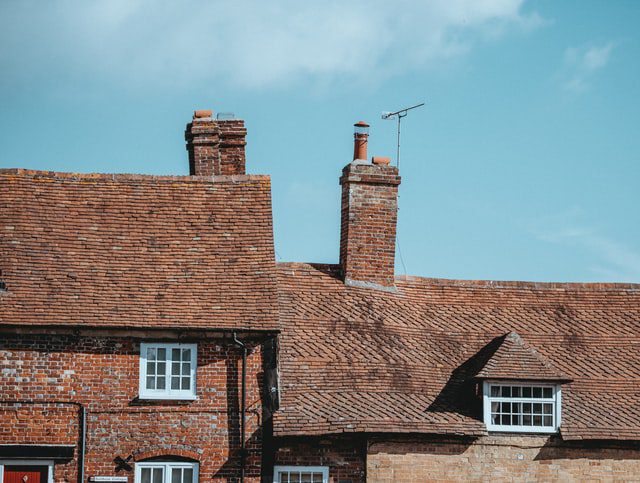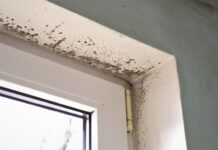Comment from Ross Counsell, chartered surveyor, and director of regulated property buyers Good Move on how to ‘storm-proof’ your home:
As we know, British weather can be nothing short of unpredictable– especially during the earlier parts of the year. Therefore, it is important to put measures in place to prevent racking up costs due to structural damages to your home.
- Check your chimney
It might be easy to overlook your chimney, but don’t risk it. In heavy rain, water can leak in through the exposed parts of your chimney, trickling down through your home and causing water damage to walls, paint and wallpaper. Make sure that any lead flashing or pointing and mortar is in good condition, and healthy enough to last all winter.
- Keep your roof in good condition
Save yourself the stress and high cost of calling out a roofer during adverse weather conditions, and make sure your roof is in good condition ahead of time. Clear out your gutters, and check that there aren’t any nearby trees or overhanging branches, which could break off in heavy snow or wind and damage your roof.
- Check your decking and patio structures
If you have a garden or yard area it is important that you select durable materials to lessen the damage you’ve put into building your outdoor areas. Weather is especially tough on decks. Materials options are wood or composite materials – however, composites stand up better to wear and tear as they are more resistant to water damage.
Choosing a durable paint is also recommended to maintaining a moisture barrier. Make sure to regularly service your decks and check vulnerable areas to ensure that rain, hail or snow haven’t abraded the paints over the years.
If you have any garden furniture, make sure it is firmly bolted down, or removed when issued with adverse weather warnings. Not only can the moisture damage your furniture, but they can also be taken by heavy winds!
- Maintain areas around the house
With heavy downpours, gutters can overflow and the weight of the water may pull them away from the house. Therefore, it is important to make sure they are firmly attached to the house structure. Also check for leaks in gutter seams – if you find leaks repair or replace the gutters.
Walk around the house and check downspouts to ensure they are still connected and unbroken. Furthermore, make sure that runoff is directed away from the house foundations – this is to minimize the risk of seepage into basements and foundations.
- Check your windows and doors
Making sure your windows and doors are sealed can make sure that moisture does not seep through any cracks. This prevents any damage to the interior of your home, and also minimises any mould or mildew damage.
Windows should be at least double-glazed to give a further barrier of protection, and any make sure to use rubber weather-stripping to fill spaces between the sides and bottom of your door and the door frame.
For external doors, ensure that your keyhole, letterbox, or cat flaps are covered. These accessories can add an extra barrier of protection and can be picked up for a couple of pounds from your local hardware store.
- Preparation is key!
Make sure to keep an eye on local flood warnings and weather news. If flood warnings are issued, install sandbags on doors, windows and any other gaps; move electrical equipment and sentimental items upstairs; disconnect all pipes to washing machines and dishwashers and turn off water, gas and electricity mains.
Also, make sure your mobile phone is charged in advance – just in case you need to call for emergency help.
Help keep news FREE for our readers
Supporting your local community newspaper/online news outlet is crucial now more than ever. If you believe in independent journalism, then consider making a valuable contribution by making a one-time or monthly donation. We operate in rural areas where providing unbiased news can be challenging. Read More About Supporting The West Wales Chronicle


























